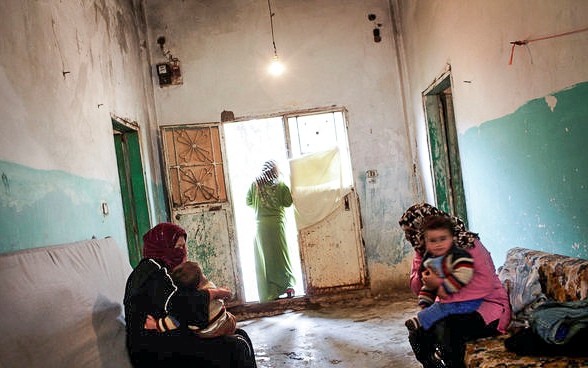 Syria’s 23 million people have little to gain from the talks that are scheduled to begin in Switzerland on Wednesday. Until the Assad regime agrees to unimpeded access for UN humanitarian aid workers, there will be no basis for dialogue and compromise. Yet Russia and Iran show no sign of applying the kind of pressure that could persuade the Assads to agree to a truce.
Syria’s 23 million people have little to gain from the talks that are scheduled to begin in Switzerland on Wednesday. Until the Assad regime agrees to unimpeded access for UN humanitarian aid workers, there will be no basis for dialogue and compromise. Yet Russia and Iran show no sign of applying the kind of pressure that could persuade the Assads to agree to a truce.
The conflict in Syria is a humanitarian catastrophe. Bashar al-Assad’s regime behaves as if the chemical weapons agreement brokered by the US and Russia last September was a permission slip for atrocities that do not involve chemical weapons. The regime is bombing and shelling populations where it thinks rebel fighters may be present. Millions of Syrians have abandoned their homes in sheer terror. Tens of thousands have been killed. Neighbouring countries are swamped with refugees. Russia and Iran could oblige their client to stop committing such crimes against humanity. They have not.
This abomination is the backdrop for a new round of talks that is meant to launch Syria’s political transition. The supposed destination is the one foreseen in the first Geneva agreement, the product of talks between the five permanent members of the UN Security Council in June 2012. That accord called for a democratic and pluralistic Syria, compliant with international standards on human rights, and offering equal opportunities and chances for all.
A merit of this vision is that it rules out Islamist extremism as the alternative. The Assad regime is not, after all, the only cancer killing Syria. Al-Qaeda elements once escorted by the regime into Iraq to kill Shia and Americans have returned to Syria to wage Islamist jihad against the ruling Alawite sect. In eastern Syria they seek to impose their own form of governance, which is a match for the regime in sheer ignorance and barbarity.
The first Geneva agreement called for a transitional governing body to be given full executive powers. Membership of the body requires the mutual consent of the Syrian parties negotiating its composition. The point of this arrangement was that it would strip Mr Assad of power. Yet this is currently inconceivable, given the facts on the ground.
The Assad regime’s proposal for a ceasefire in Aleppo, while potentially useful, is a pitifully small gesture aimed more at generating propaganda than saving lives. The regime possesses a military advantage that appears unassailable. It draws on Lebanese and Iraqi fighters trained by Iran and a generous supply of Russian arms. Opposition armed forces who favour a political outcome consistent with the Geneva accord find themselves outgunned, having received paltry support from the west. As long as Mr Assad is in a position to continue his brutal rule with impunity, he is unlikely to be in the mood for compromise.
The Syrian National Coalition has wisely voted to attend the conference. Yet the nonsectarian elements of the opposition are fractured and dispirited. In Geneva they are being asked to sit with representatives of a regime borne aloft by foreign fighters accused of war crimes, and insistent that Mr Assad will stay in charge even if a transitional governing body is formed. The west wants them to demonstrate reasonableness, flexibility and political sophistication in front of a ruling clan that is dropping barrel bombs on schools, clinics and bakeries. Under these horrific conditions, the prospects for civilised discussion are dim.
The west seems to hope that Russia holds the key to unlocking progress at Geneva. If Moscow truly wishes to see progress, it will demand that Syria grant full, uncontested access to UN humanitarian workers and stop the mass slaughter. Iran is even better positioned than Russia to save Syrian lives, given that its militias and military advisers keep Mr Assad afloat. It would be better if it had done so already.
With a humanitarian truce in place, negotiations might eventually produce the compromises that can save Syria. Without it, they are likely to exacerbate matters. The US may even be obliged to resurrect a credible threat of military force to mitigate an outrage that others seem unable or unwilling to stop.
Frederic C. Hof is a senior fellow with the Atlantic Council’s Rafik Hariri Center for the Middle East. This article originally appeared in the Financial Times on January 19, 2014.
